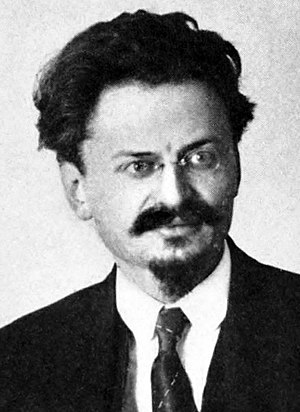
“Old age is the most unexpected of all things that happen to a man”
Share this quote:
“The end may justify the means as long as there is something that justifies the end.”
Share this quote:
“You may not be interested in strategy, but strategy is interested in you.”
Share this quote:
“Life is not an easy matter... You cannot live through it without falling into frustration and cynicism unless you have before you a great idea which raises you above personal misery, above weakness, above all kinds of perfidy and baseness.”
Share this quote:
“Learning carries within itself certain dangers because out of necessity one has to learn from ones enemies.”
Share this quote:
“Revolutions are always verbose.”
Share this quote:
“There are no absolute rules of conduct, either in peace or war. Everything depends on circumstances.”
Share this quote:
“Ideas that enter the mind under fire remain there securely and for ever.”
Share this quote:
“If we had more time for discussion we should probably have made a great many more mistakes.”
Share this quote:
“You are pitiful isolated individuals; you are bankrupts; your role is played out. Go where you belong from now on / into the dustbin of history!”
Share this quote:
“The dialectic is neither fiction or mysticism, but a science of the forms of our thinking insofar as it is not limited to the daily problems of life but attempts to arrive at an understanding of more complicated and drawn-out processes. The dialectic and formal logic bear a relationship similar to that between higher and lower mathematics.”
Share this quote:
“The dialectic is neither fiction nor mysticism, but a science of the forms of our thinking insofar as it is not limited to the daily problems of life but attempts to arrive at an understanding of more complicated and drawn-out processes. The dialectic and formal logic bear a relationship similar to that between higher and lower mathematics.”
Share this quote:
“The ancient Greek philosophers were all natural-born dialecticians and Aristotle, the most encyclopaedic intellect among them, had even already analysed the most essential forms of dialectical thought.”
Share this quote:
“That Logic has advanced in this sure course, even from the earliest times, is apparent from the fact that, since Aristotle, it has been unable to advance a step, and thus to all appearance has reached its completion.”
Share this quote:
“Dialectics gives expression to a law which is felt in all grades of consciousness and in general experience. Everything that surrounds us may be viewed as an instance of dialectic. We are aware that everything finite, instead of being inflexible, is rather changeable and transient; and this is exactly what we mean by the dialectic of the finite, by which the finite, as implicitly other than it is, is forced to surrender its own immediate or natural being, and turn suddenly into its opposite.”
Share this quote:
“The dialectic is not a magic master key for all questions. It does not replace concrete scientific analysis. But it directs this analysis along the correct road, securing it against sterile wanderings in the desert of subjectivism and scholasticism.”
Share this quote:
“The fundamental flaw of vulgar thought lies in the fact that it wishes to content itself with motionless imprints of a reality which consists of eternal motion.”
Share this quote:
“Every present state of a simple substance is the natural consequence of its preceding state, in such a way that its present is big with its future.”
Share this quote:
“Dialectical materialism is not of course an eternal and immutable philosophy. To think otherwise is to contradict the spirit of the dialectic. Further development of scientific thought will undoubtedly create a more profound doctrine into which dialectical materialism will enter merely as structural material.”
Share this quote:
“Dialectical thought is related to vulgar thinking in the same way that a motion picture is related to a still photograph. The motion picture does not outlaw the still photograph but combines a series of them according to the laws of motion.”
Share this quote: